ASHLEY, Pa.— Truckloads of documents, artifacts and personal items from a major coal company that helped Pennsylvania fuel the Industrial Revolution are coming to Bethlehem.
The materials from Glen Alden Coal Company will be moved to the Industrial Archives in Bethlehem, and kept in heat and moisture-controlled rooms designed to preserve their condition.
The move was announced Wednesday at a news conference.
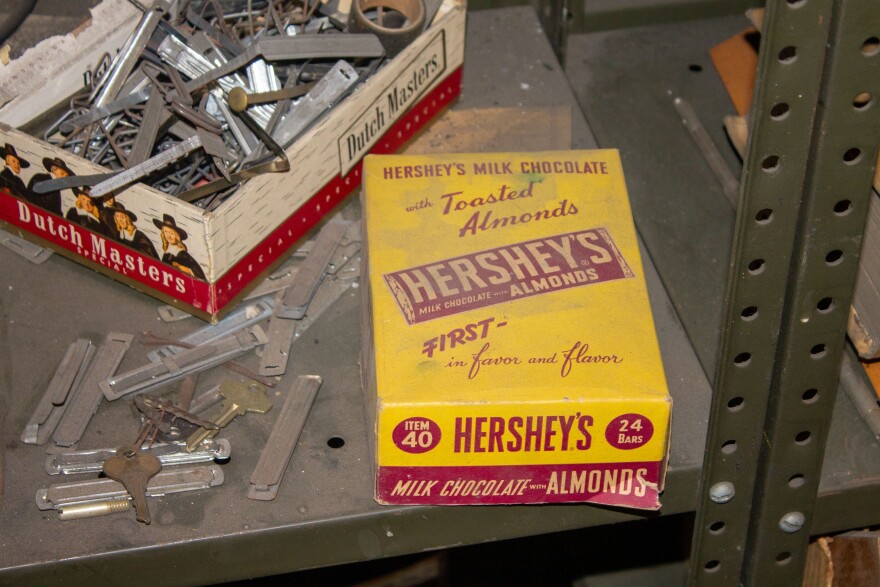
The collection is now stored in the Earth Conservancy building in Ashley, and the move is set to happen over the next five or so years.
Glen Alden Coal Company
At its peak, the Glen Alden Coal employed 34,000 people in Northeast Pennsylvania, and operated 26 production facilities.
It was the biggest coal producer in Luzerne and Lackawanna counties, and has had lasting impacts on the look and feel of the area — and the generations of families that had some connection to the company.
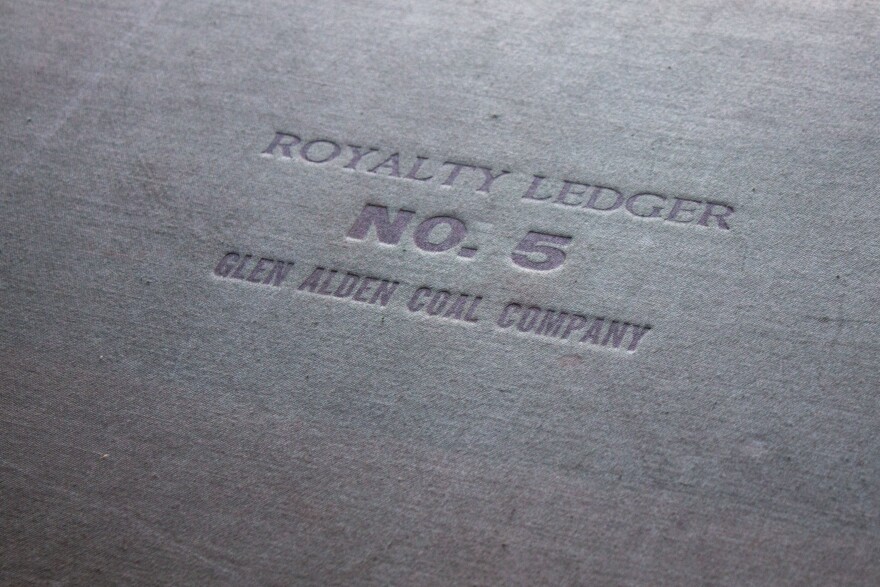
"I would say a majority of the people who are living in this area, have a relative who worked for Glen Alden, or who worked for Blue Coal," Missy Nerino, a Digital Archivist working on the project, said.
"But also, there's a lot of things that also can be attributed to it: the entire landscape of this are comes down to the coal mining that was done here. You've got the culm banks, you've got the breakers the collieries, you drive around for more than five minutes, you're going to see some sort of thumbprint that this company left behind."
"There's a lot of things that also can be attributed to it: the entire landscape of this are comes down to the coal mining that was done here. You've got the culm banks, you've got the breakers the collieries, you drive around for more than five minutes, you're going to see some sort of thumbprint that this company left behind."Missy Nerino, Digital Archivist & Librarian
The company's impressive run came to a slow, some would say painful end.
In a bankrupty that spanned 25 years — one of the longest in U.S. history — marred by an FBI investigation and alleged crime connections, the company officially ceased to exist in 1976.
The depths of the collection
Despite being coated in a layer of coal dust, most of the documents are in perfect condition and paint a fuller picture of the now-bankrupt coal company that played a major role in Pennsylvania's industrial history, officials said.
If everything in the collection was laid end-to-end, it would span about 21,000 feet — or nearly four miles, according to Nicholas Zmijewski, an archivist at the Industrial Archives & Library.
“You know, we're going through filing cabinets trying to figure out what's here and trying to make sense of how everything fits together,” Zmijewski said.
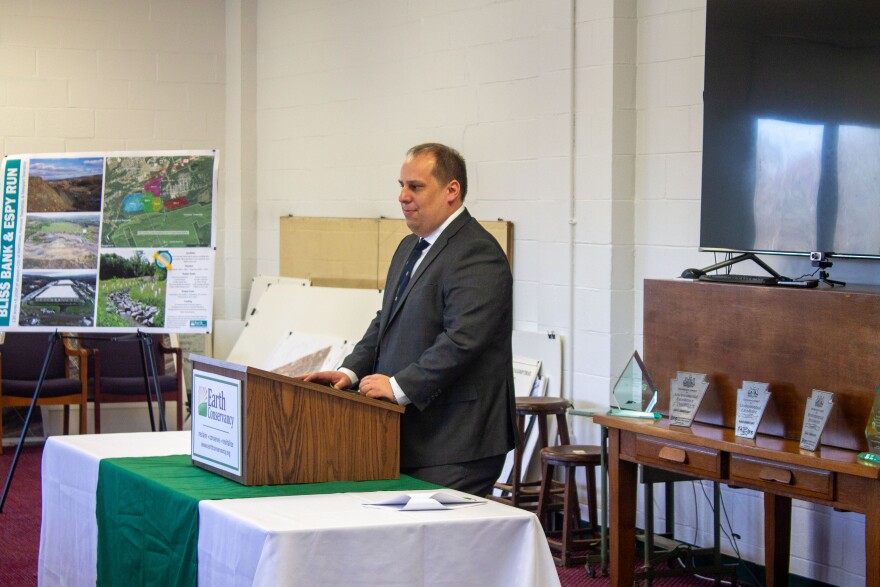
“The maps alone are the bulk of the collection — maps and drawings. But there's also so much of the corporate business records and correspondences, contracts and legal stuff.
"A lot of what's up there [in Earth Conservancy storage] is from the legal department, so we're just trying to put it together, figure out how it all works and how we can make it accessible.”
"So during the 60s and 70s, and there was a lot of legal issues that Glen Alden was facing. So the one room back there, we lovingly call the FBI room — because the FBI actually came and raided a bunch of stuff, because of the possible connections to Jimmy Hoffa, but also the legal issues that Blue Coal was going through at the time."Melissa "Missy" Nerino, Digital Archivist & Librarian for the Industrial Archives & Library.
Part of the reason there are so many records is that the company's bankruptcy was not a simple one — it took nearly 25 years. With that, comes lots of legal documents.
Part of the Industrial Archives' obligation to the collection and the public, Zmijewski said, is that it will be accessible for anyone who wants to browse through it.
“That's what it's all about, is connecting people to the stories themselves, their relatives, and so on," he said.
"You know, we got an email from the grandson of one of the former corporate attorneys, and he was looking for stuff that his grandfather had done. We were able to provide him with some stuff he'd written.”
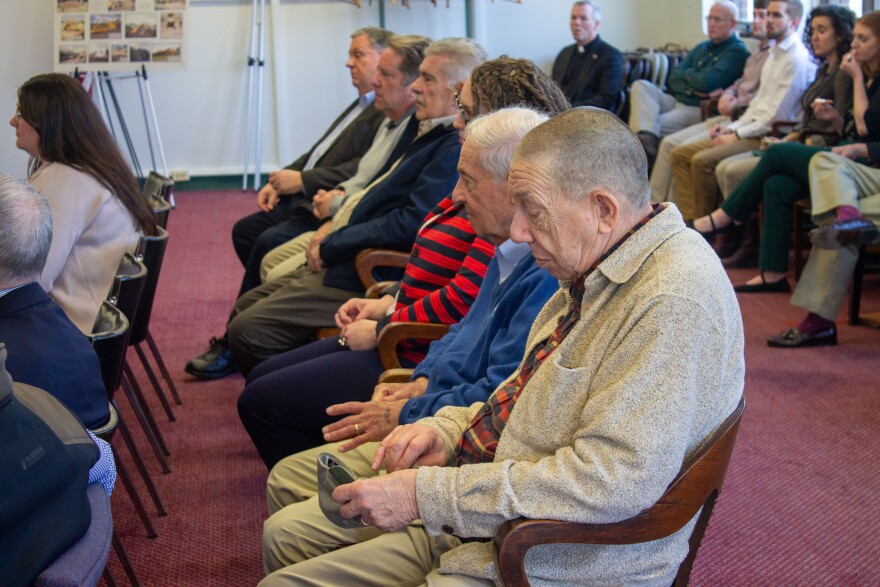
The 'FBI room'
In the years leading up to the company's bankruptcy in 1976, it was the subject of an FBI investigation.
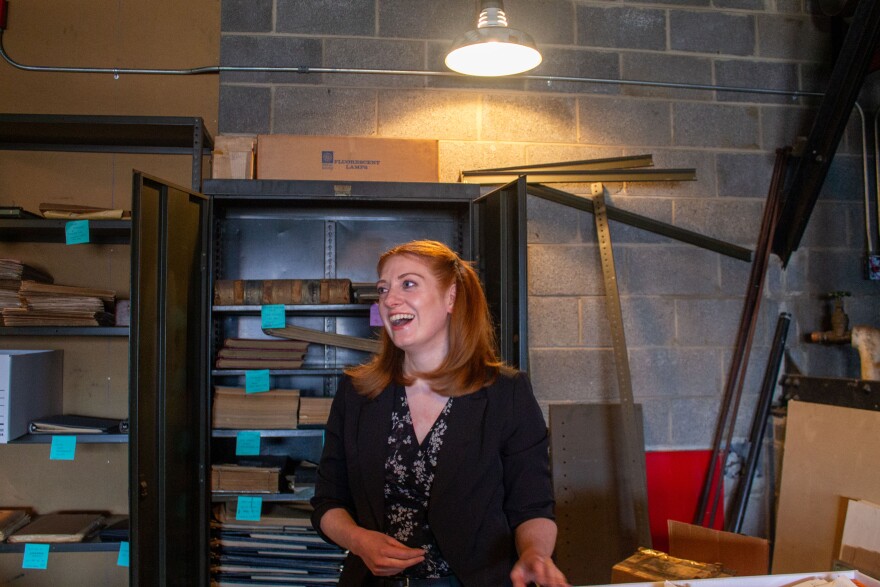
That, along with other parts of its history that some may consider unsavory, are reflected in the archives — such as its connection to controversial former Teamsters leader Jimmy Hoffa.
There are so many documents from the coal company labeled as "returned from the FBI", that an entire room is “lovingly” called the “FBI Room,” according to Digital Archivist Missy Nerino.
“So during the '60s and '70s, and there was a lot of legal issues that Glen Alden was facing," Nerino said. "So the one room back there, we lovingly call the FBI room — because the FBI actually came and raided a bunch of stuff, because of the possible connections to Jimmy Hoffa, but also the legal issues that Blue Coal was going through at the time.”
That FBI investigation didn't lead to any criminal proceedings, but did color the public perception of the company in its final years, archivists said.
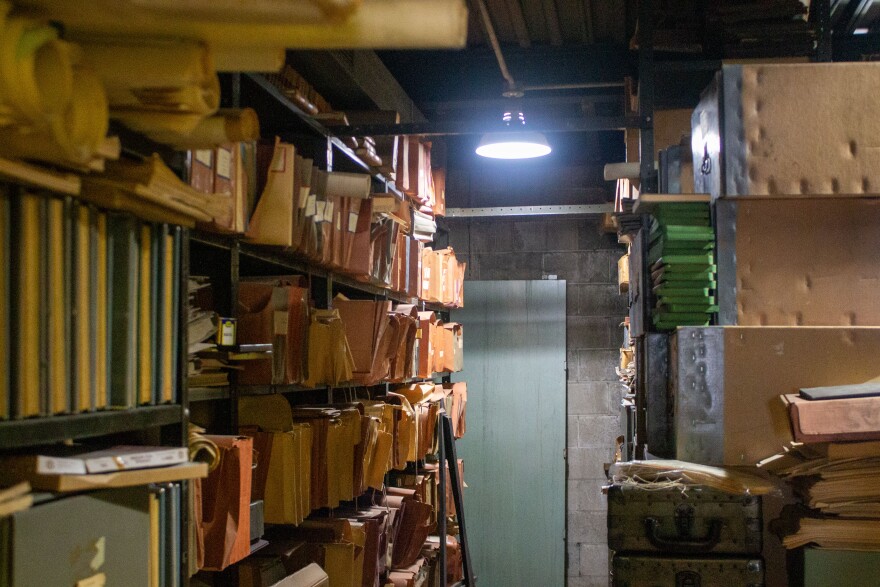
What the records say about us
As has been the case with other catalogs of company records in history, some artifacts shed light on the personal, and private, lives of the people involved.
For example, an ashtray from a Playboy Club.
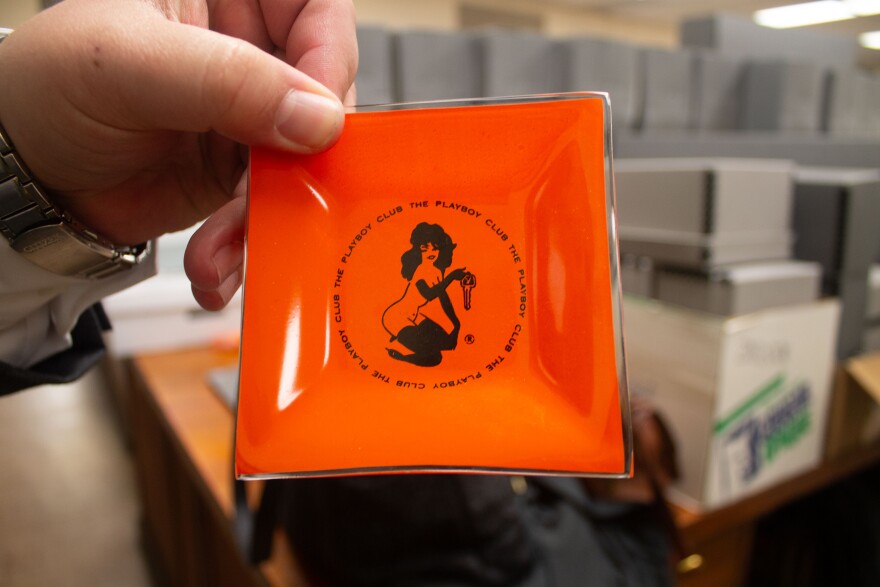
The owner of the Playboy ashtray was not identified, and the archivists were careful not to speculate too much on the story behind it. But they agreed it's funny.
There also are thousands of personnel files within the collection. Some tell harrowing stories of injuries sustained on the job, including people who suffered in catastrophic explosions and other mining accidents.
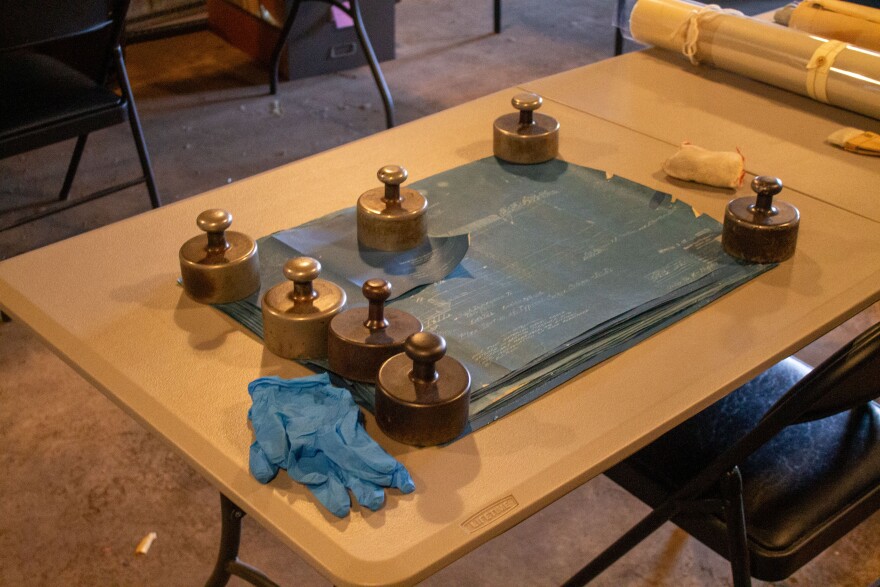
One story revealed in the documents showed a pattern of local schools who bought coal from the coal company and claimed that it must have been contaminated with some sort of explosive dust — as it caused their coal furnaces to explode.
The resolution of those and other stories is not yet fully fleshed out — but the Industrial Archives & Library said they hope that having extensive records available for research and the public record will help enhance what we know about the defunct coal company.


